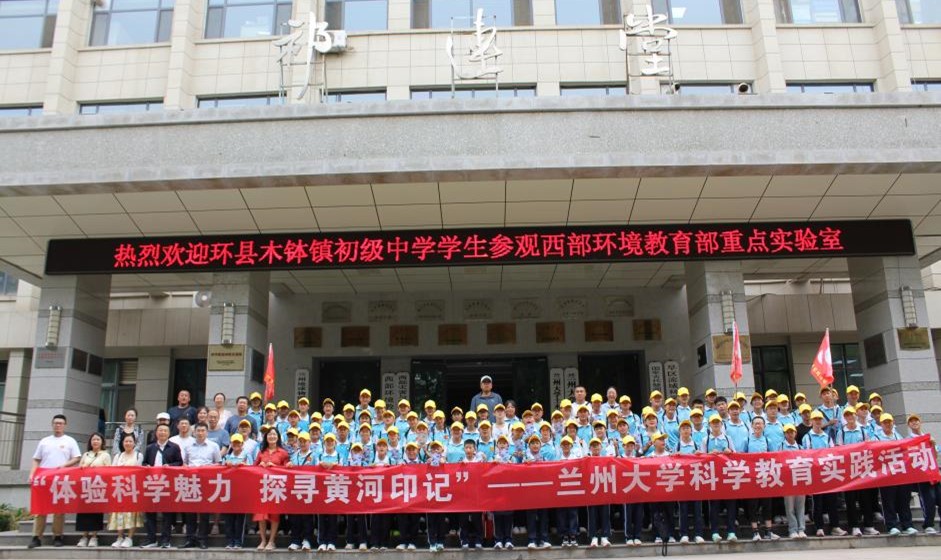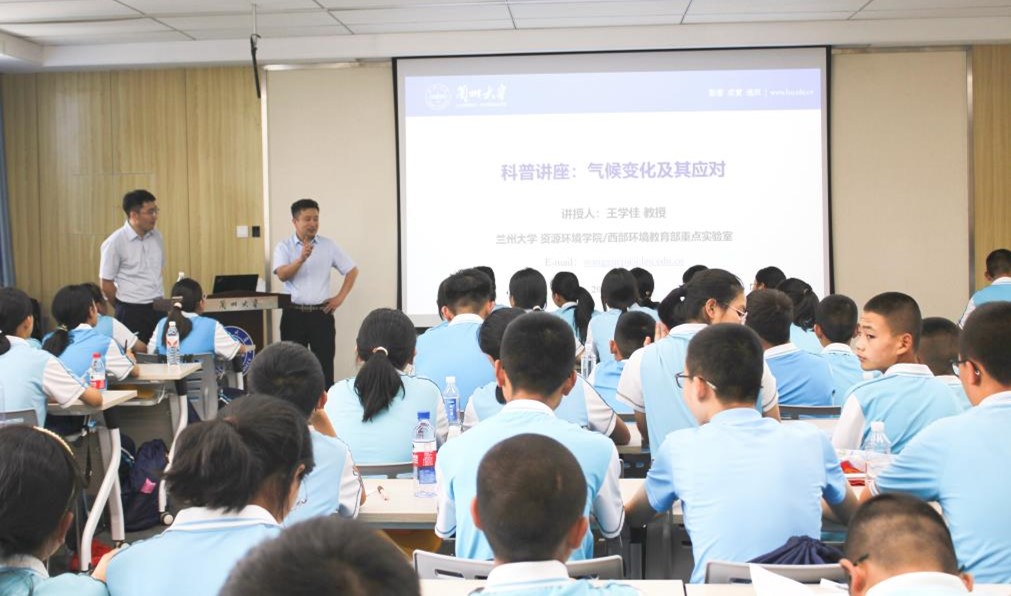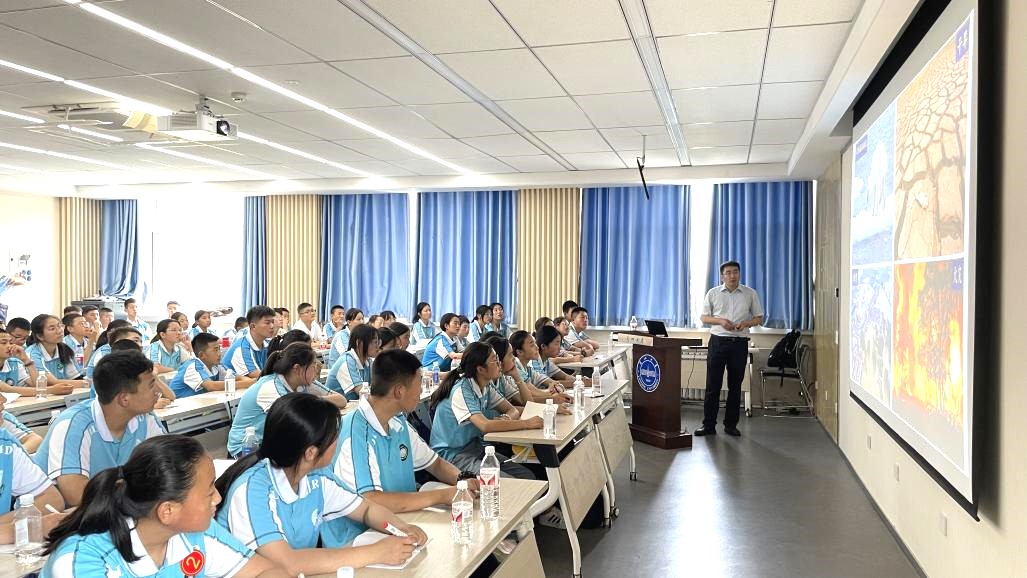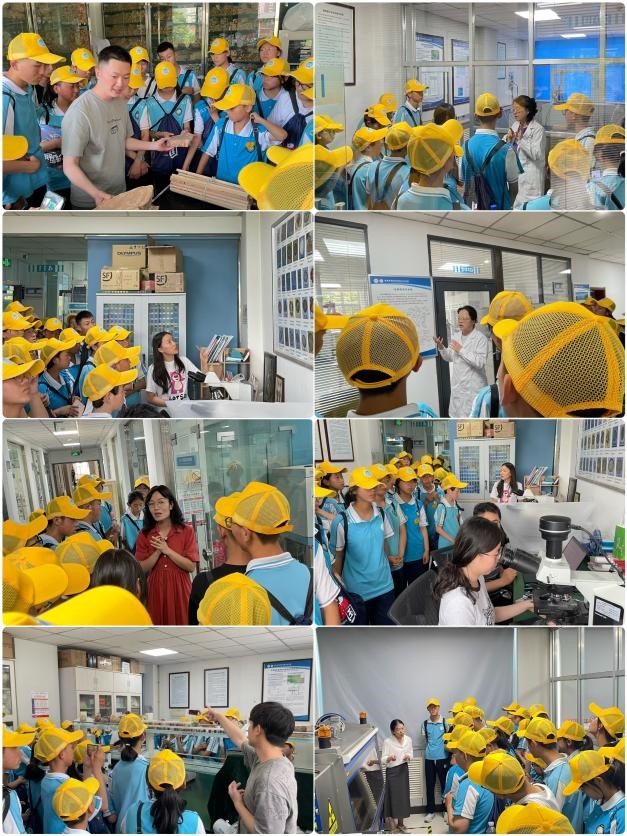On the afternoon of June 21, over 90 students from Mubotown Junior High School in Huan County, Qingyang City, Gansu Province, visited the Key Laboratory of Western China's Environmental Systems, Ministry of Education, for an exceptional science education activity.

Figure 1: Group Photo of the Visit
Professor Wang Xin, Deputy Director of the Key Laboratory, began with an introduction about the students' hometown, the Loess Plateau. He explained the history and significance of loess research in China in an accessible way, highlighting that science is present in everyday life. He encouraged the students to discover, observe, and explore science in their daily lives.

Figure 2: Wang Xin's Speech
Professor Wang Xuejia delivered a science lecture titled "Climate Change and Its Countermeasures." He explained the causes, impacts, and strategies to address global climate challenges in simple terms. After the lecture, Professor Wang engaged in an interactive discussion with the students about "how to mitigate climate change starting with oneself," leading to a lively exchange of ideas.

Figure 3: Wang Xuejia's Science Lecture
Following the lecture, under the guidance of teachers Pan Yanhui and Cao Huihui, the students visited the Analytical Testing Center. Laboratory heads and graduate students enthusiastically introduced their research fields to the students. The students were curious about the advanced scientific equipment in the labs, asking many questions. Through detailed explanations and interactive sessions, the students experienced real scientific research life firsthand, planting seeds of scientific curiosity in their hearts.

Figure 4: Laboratory Visit
Most students from Mubotown Junior High School come from impoverished families. This science education activity provided them with a unique opportunity to engage with science up close, broadening their horizons and boosting their confidence.
In recent years, the laboratory has actively utilized the research expertise and science education experience of renowned scientists in the field. Focusing on the long-term evolution of arid environments and civilizations, and leveraging some of the world's most advanced instruments, the laboratory has broken down barriers between humanities and natural sciences. By presenting science in an accessible manner, the laboratory has effectively popularized science among the public, achieving excellent results.